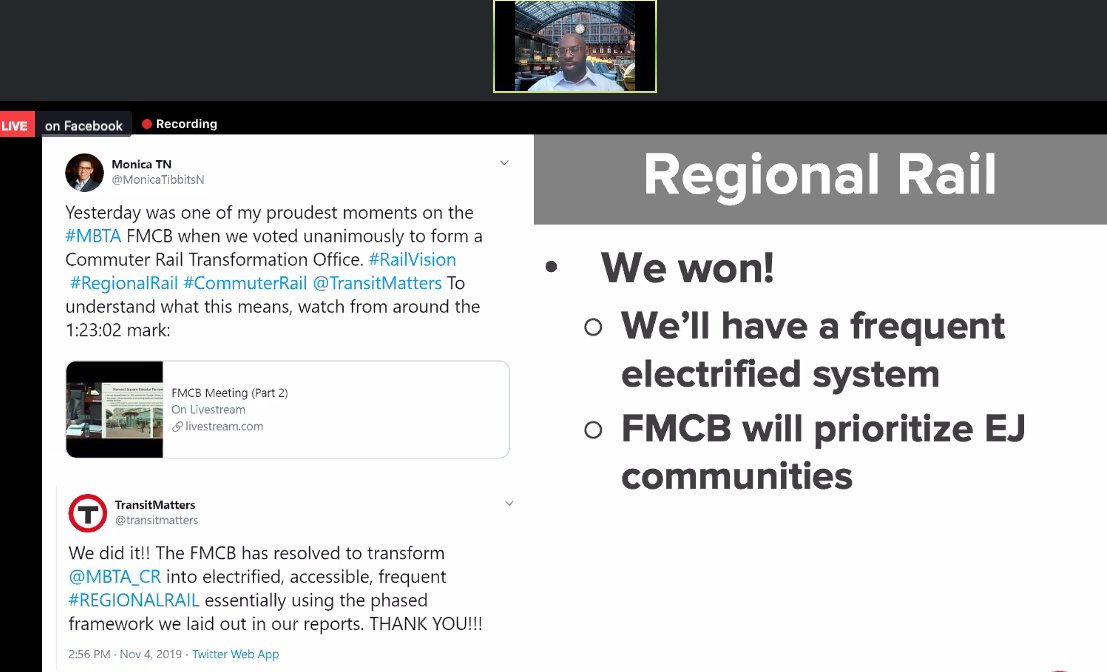We& #39;re live with @jarjoh and @tracyacorley talking about @TransitMatters regional rail campaign and how advocates are building momentum for more frequent, affordable rail service that works for rider with lower incomes.
> @Jarjoh: U.S.-style "commuter rail" service is like climbing onto a train from the 1950s.
The rest of the world has adopted regional rail service practices, where you can show up any time of day and know you won& #39;t have to wait more than 15 min for next train.
The rest of the world has adopted regional rail service practices, where you can show up any time of day and know you won& #39;t have to wait more than 15 min for next train.
MBTA has already had to adapt commuter rail schedules to the COVID-19 context. Healthcare workers do not have 9-5 shifts. Agency had to add early morning service to respond to medical workers& #39; needs.
@Jarjoh: COVID-19 has also highlighted inequities in rail access. The commuter rail services whiz by communities of color in cities, and neighborhoods with predominantly low-income residents. Those residents have to rely on slower but less expensive bus services.
@Jarjoh: The same issues we had before COVID-19 are not only present, but exacerbated now. Race- and income-based disparities in job access, housing access have to be addressed, and affordable, all-day regional rail service remains a need that has to be prioritized.
@Jarjoh and @tracyacorley point out that critical to making regional rail more accessible is good land use and housing policy. Walkable, affordable, mixed-income housing close to stations have to complement the service reforms.
@Jarjoh: To make service affordable, fare validation and train staffing have to change. "When you have a system that does not rely on someone coming in to punch tickets, you can reallocate those folks to help drive trains."

 Read on Twitter
Read on Twitter


